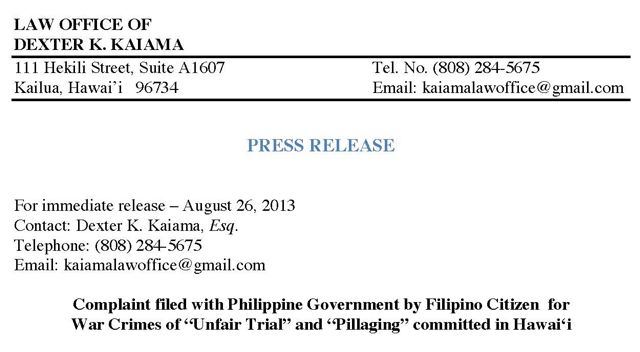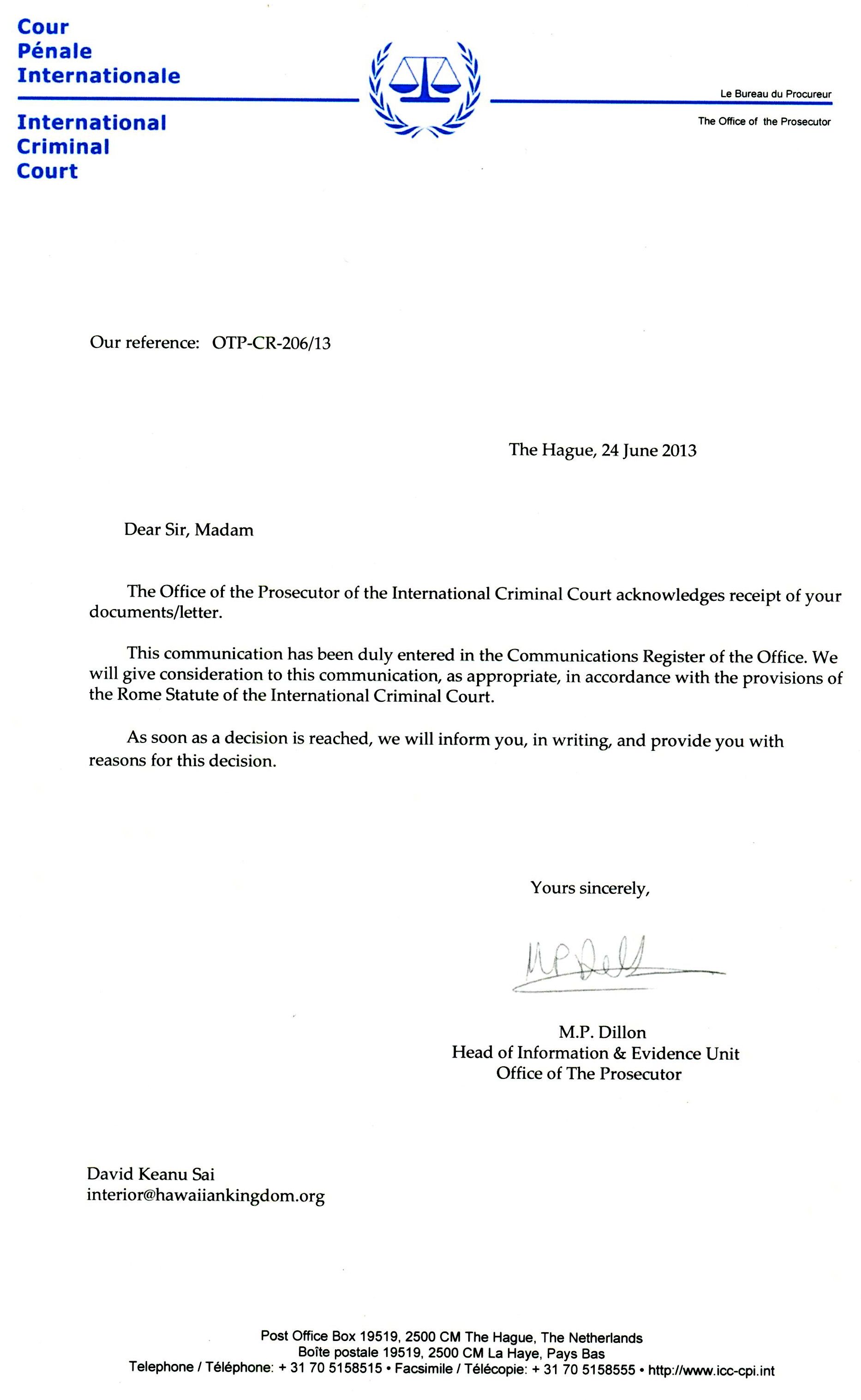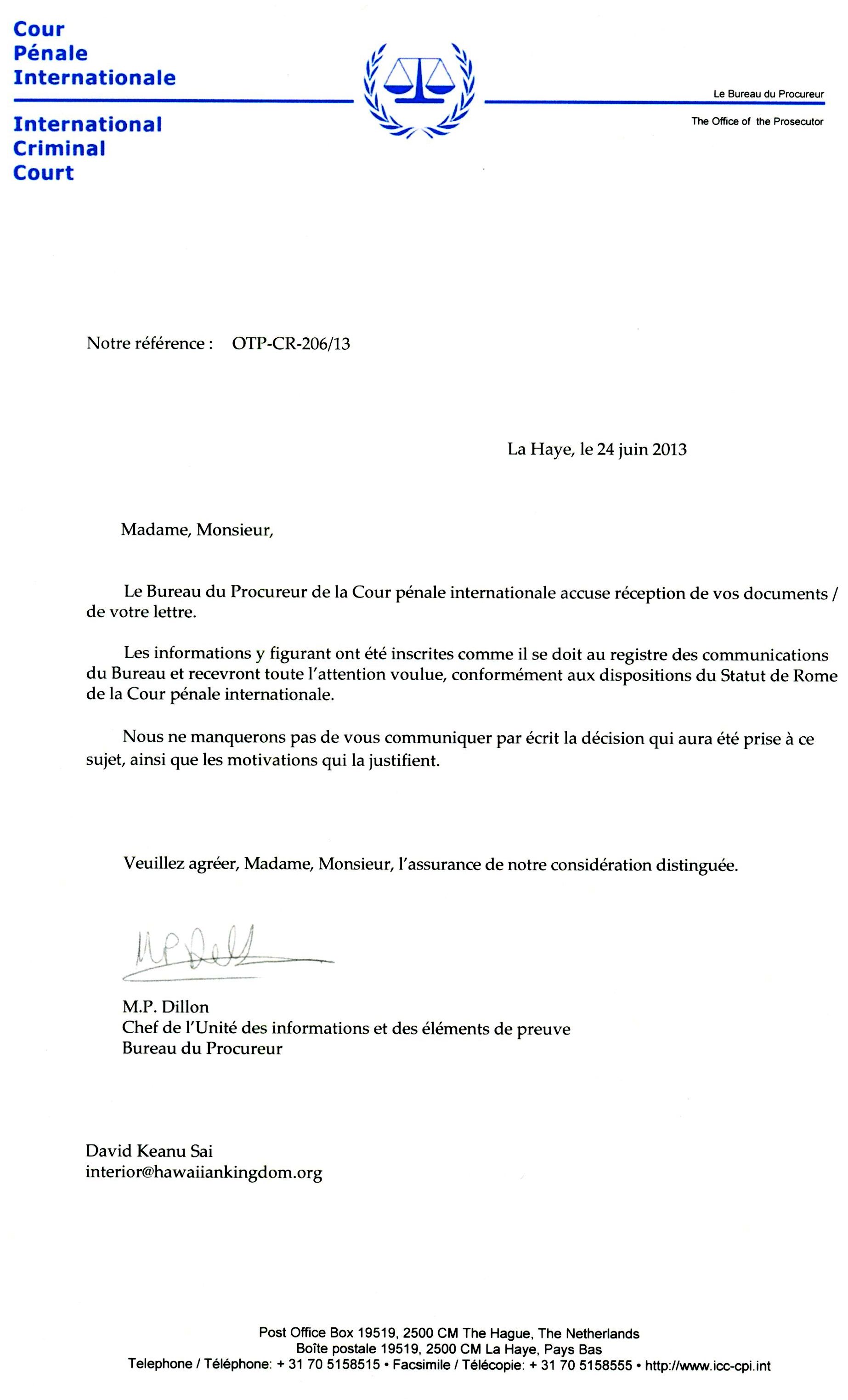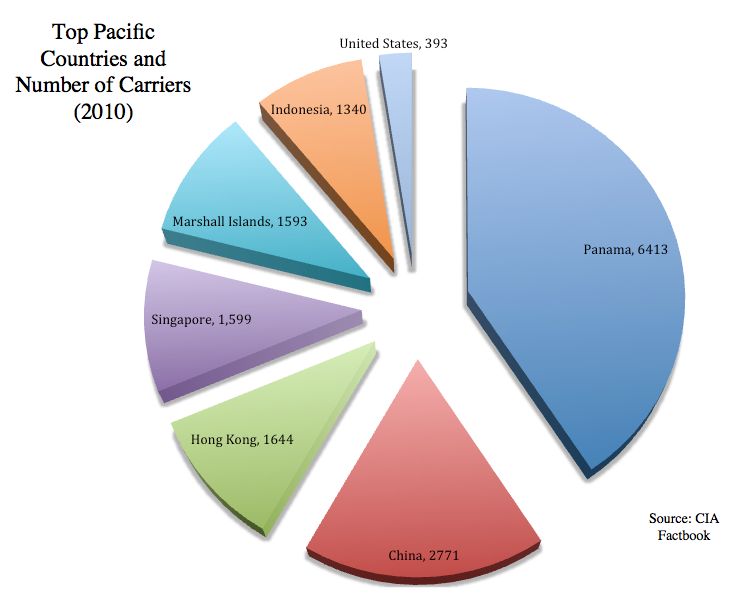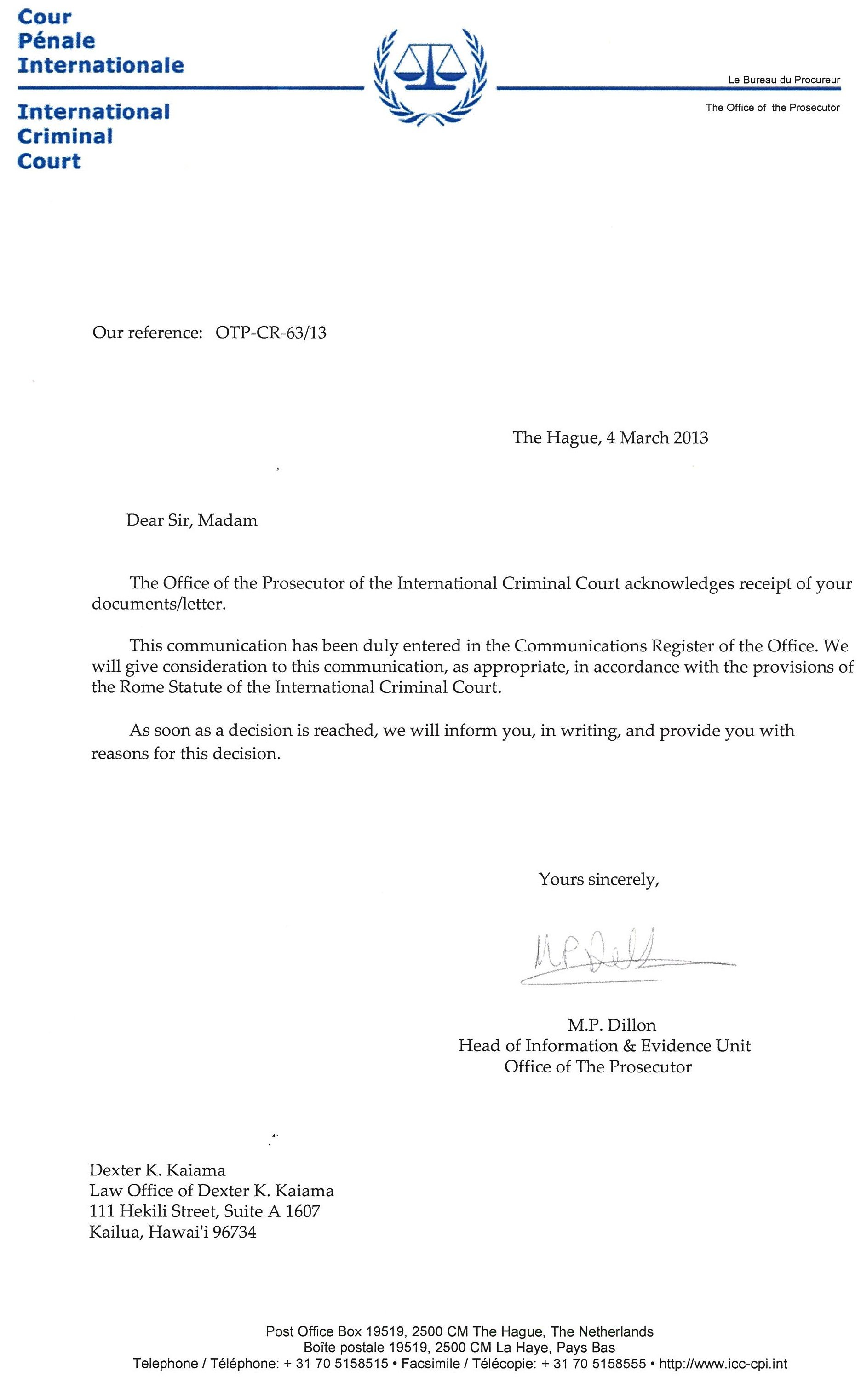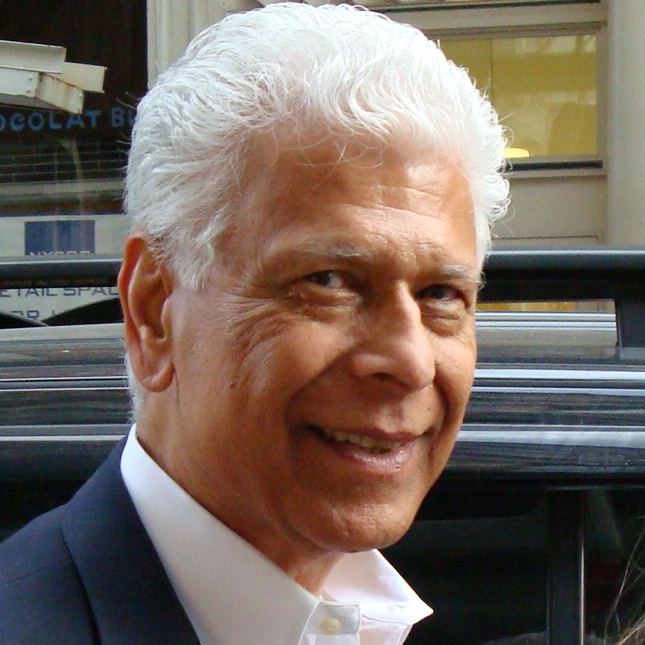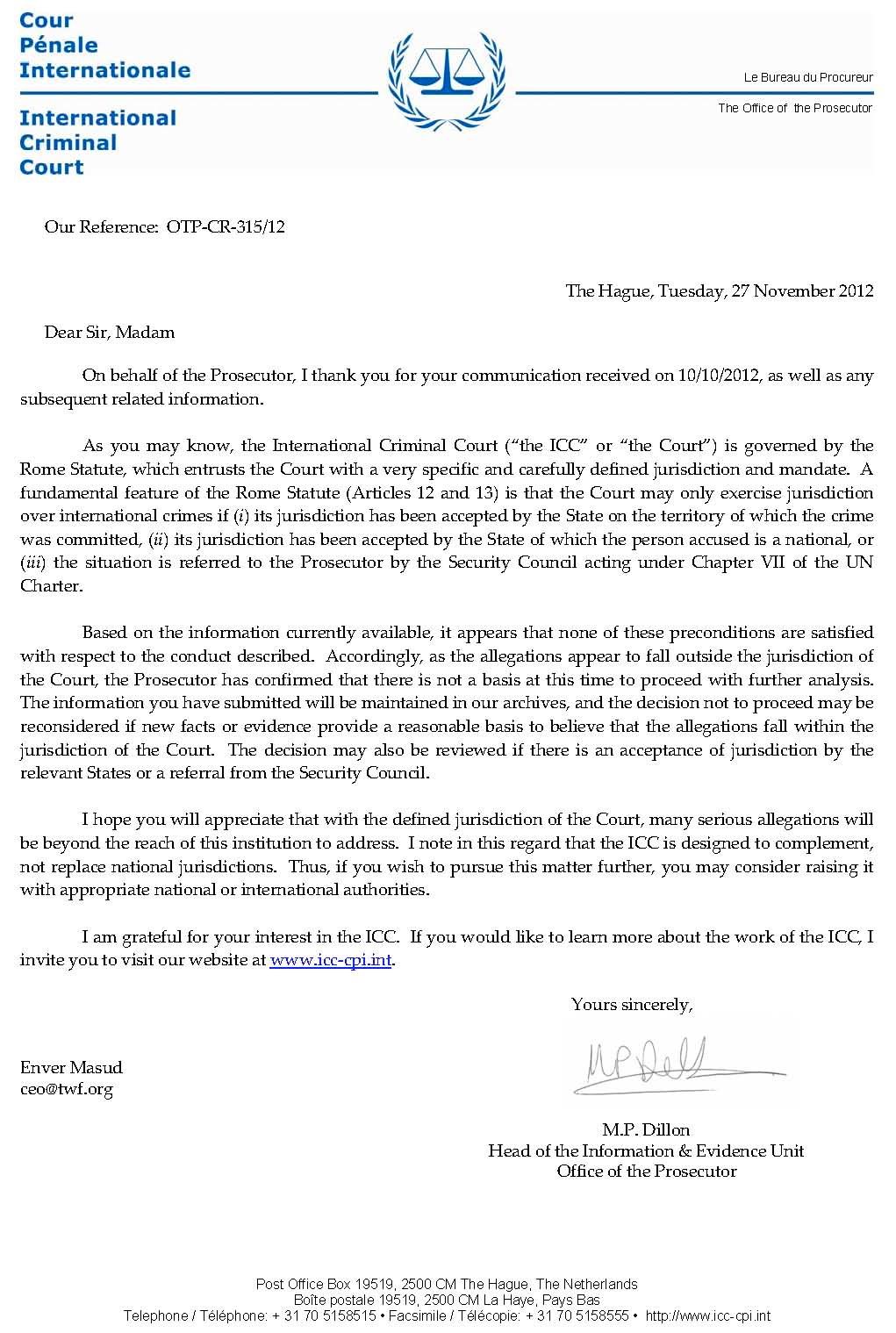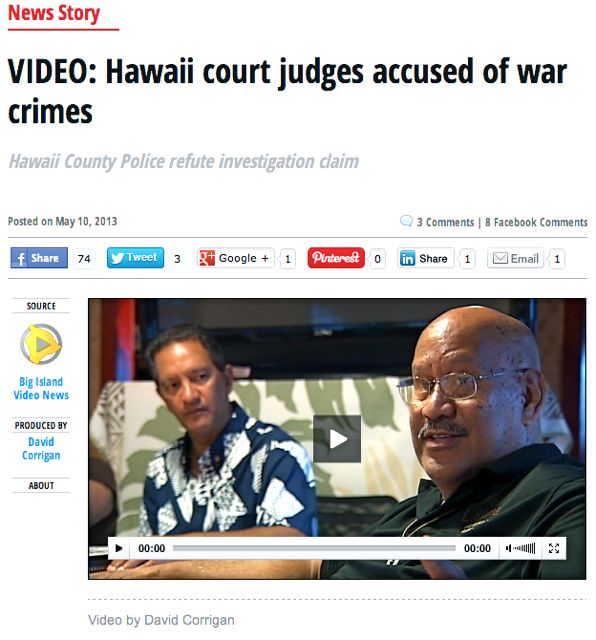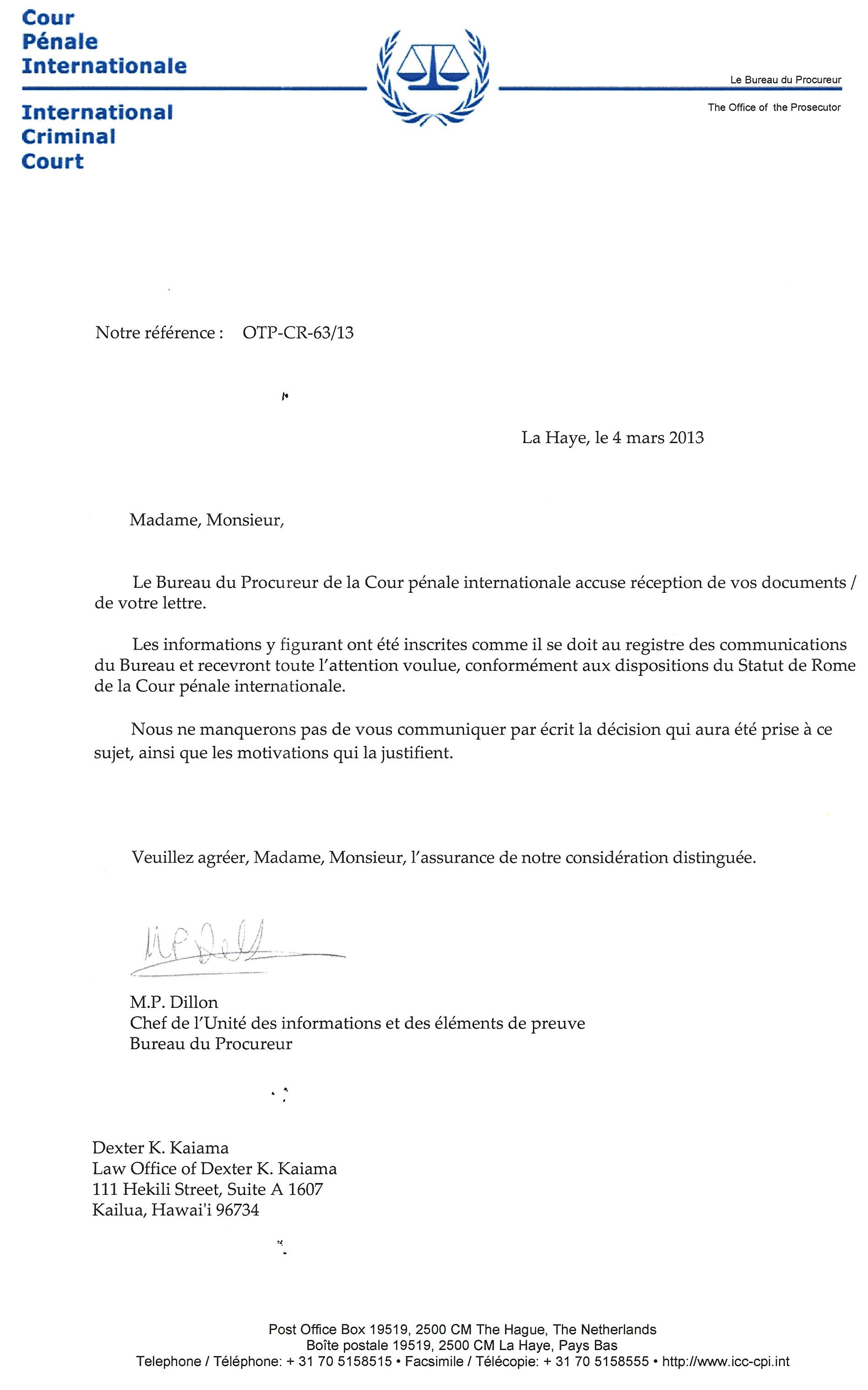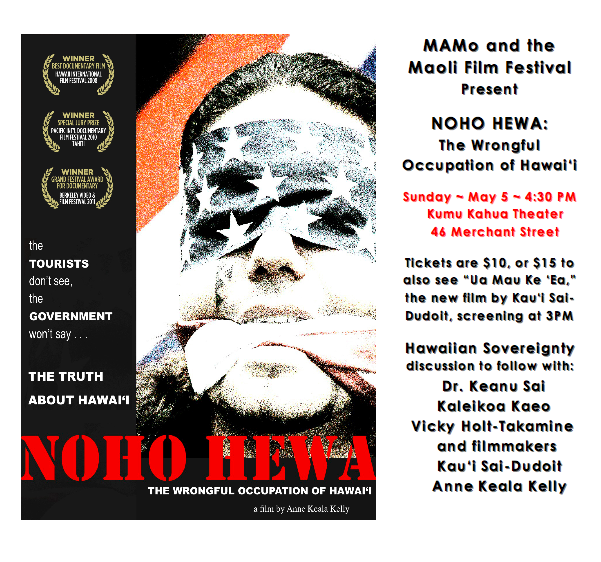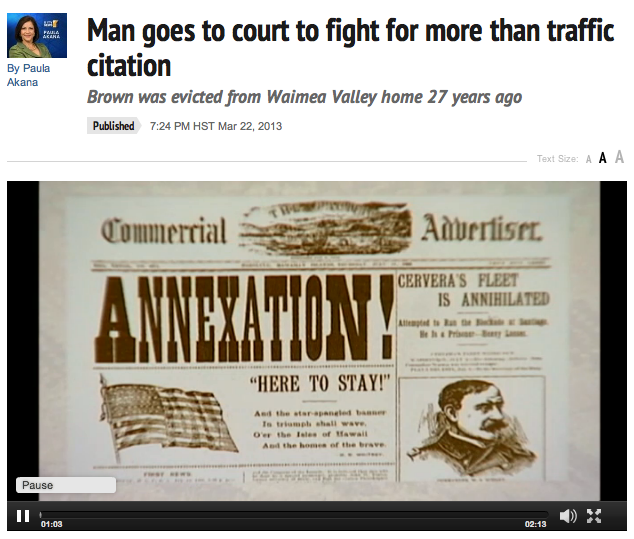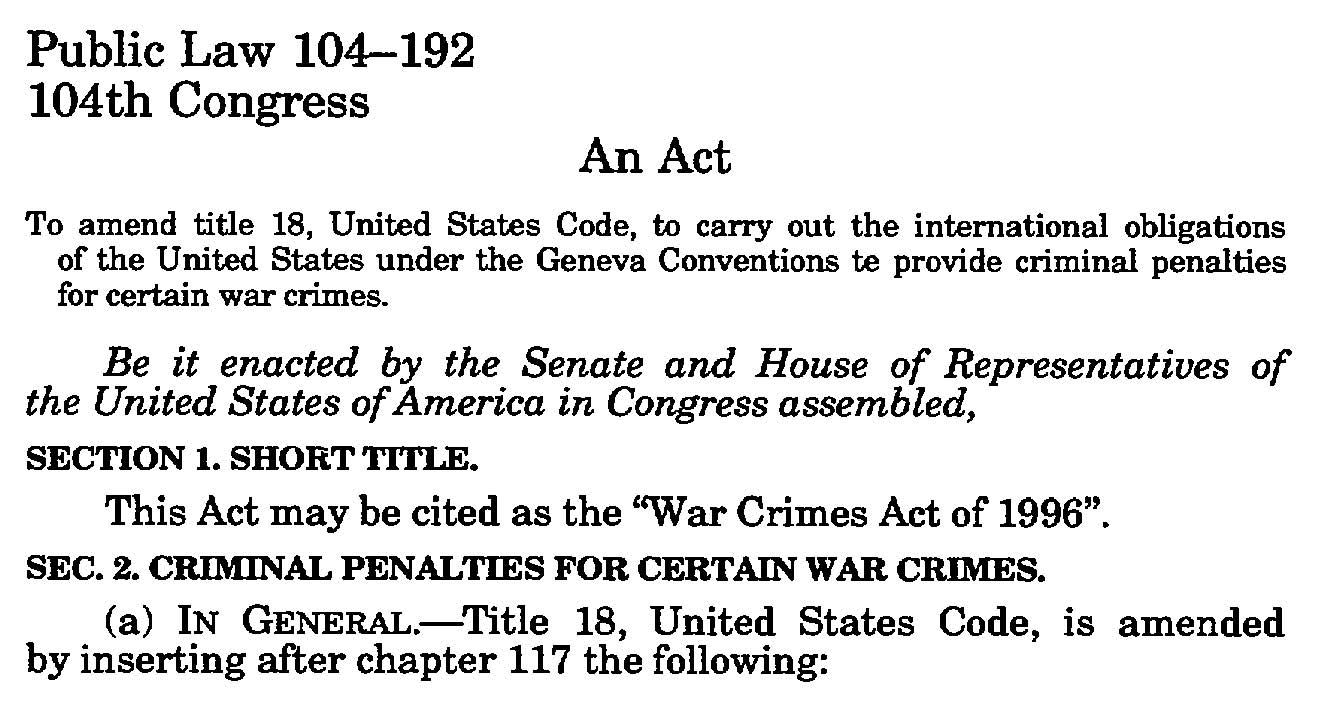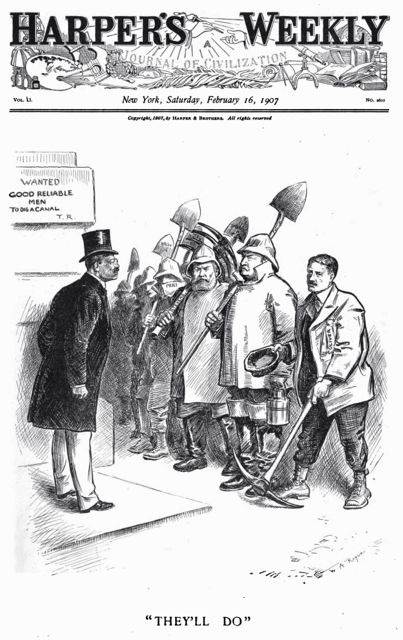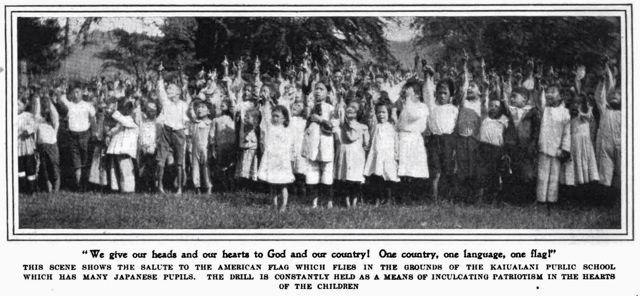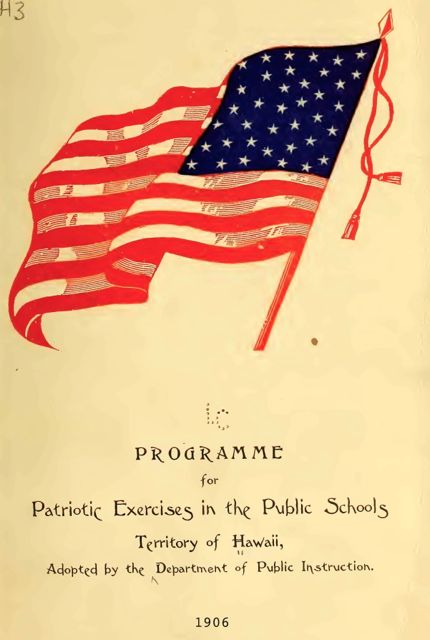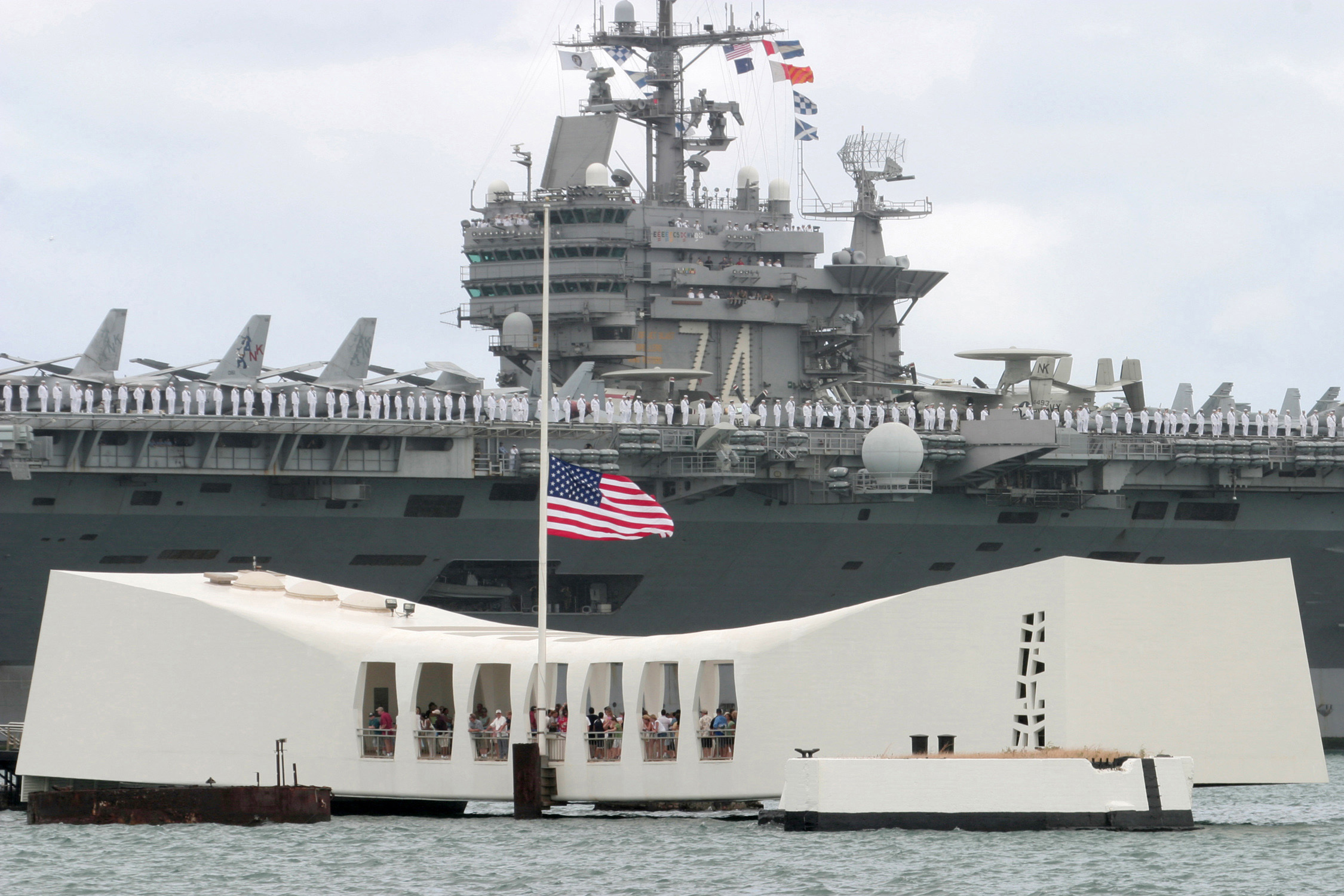Yesterday, the German Federal Prosecutor received a war crime complaint filed by attorney Dexter Kaiama alleging the Management Board of Deutsche Bank, Judge Greg K. Nakamura, and Deutsche Bank attorneys Charles R. Prather, Sofia M. Hirosone, and Michael G.K. Wong committed criminal acts against his clients Mr. Kale Kepekaio Gumapac and Mr. Harris Bright, both being Hawaiian subjects and protected persons under the Fourth Geneva Convention, 1949. The basis of the complaint is Section 6(9) of the German Criminal Code, which authorizes the German government to prosecute crimes committed by a German abroad, the German Code of Crimes against International Law (CCAIL), and the 1879 Hawaiian-German Treaty of Friendship, Commerce and Navigation and Consular Convention. Deutsche Bank is a German financial institution headquartered in Frankfurt, Germany.
The complaint alleges that “Deutsche Bank, despite having no valid and legal interest in both of my clients’ property, has deliberately ignored pursuing its proper remedy for financial recovery, and instead, intentionally violated CCAIL (and international law) by initiating a fraudulent and unlawful court process to obtain unlawful orders to evict my clients from their property, thereby committing violations of the CCAIL.” In the complaint, it states that both clients mortgaged their properties that was eventually assigned to Deutsche Bank, but were unaware that their titles to their properties were defective as a direct result of the illegal overthrow of the Hawaiian government by the United States in 1893 and the United States subsequent illegal and prolonged occupation.
Laulima Title Search and Claims, LLC, a company owned by Gumapac, was contracted to investigate the title to both properties and determined “This claim involves a defect of title by virtue of an executive agreement entered into between President Grover Cleveland of the United States and Queen Lili‘uokalani of the Hawaiian Kingdom, whereby the President and his successors in office were and continue to be bound to faithfully execute Hawaiian Kingdom law by assignment of the Queen under threat of war on January 17th 1893. The notaries public in the Hawaiian Islands and the registrar of the Bureau of Conveyances were not lawful since January 17th 1893, and therefore title to the estate in fee-simple” defective, “because…the deed of conveyance was not lawfully executed in compliance with Hawaiian Kingdom law.”
Since a mortgage is a lien on the title to the property, a defect in title would consequently render the lien invalid, which would also invalidate any foreclosure and ejectment proceedings stemming from the mortgage. In order for lenders to protect themselves from this type of situation, they require the borrowers to purchase title insurance as a condition of the loan. Both Gumapac and Bright purchased title insurance while they were in escrow that covered the amount of the money each had borrowed. The complaint provides a definition of title insurance from Black’s Law dictionary as a “policy issued by a title company after searching the title, representing the state of that title and insuring the accuracy of its search against claims of title defects.” The complaint further states that title insurance is an “indemnity contract that does not guarantee the state of the title but covers loss incurred from a defect in land titles that would arise from an inaccurate title report.”
Both Gumapac and Bright each sent a letter with the evidence of the defect in title to Deutsche Bank, and called on “Deutsche Bank to cease the ejectment proceedings and to file an insurance claim under the lender’s title insurance policy.” Deutsche Bank refused to file the insurance claim and maintained the proceedings to evict Gumapac and Bright in the Third Circuit Court in Hilo.
Because Deutsche Bank refused to file the insurance claim, motions to dismiss with evidence were filed with the Third Circuit Court. The basis for the dismissals were that since Hawai‘i is under a prolonged and illegal occupation, the court, which is an American court, cannot claim to have authority in the Hawaiian Islands if Hawai‘i is not part of the United States. Despite having Judge Nakamura take judicial notice of the evidence and the attorneys for Deutsche Bank providing no counter evidence, Judge Nakamura denied the motion and eventually issued the orders for eviction. According to Kaiama, this is evidence of an unfair trial and pillaging because Deutsche Bank is attempting to seize property that they have no legal interest through a court that is illegal. Both unfair trial and pillaging are war crimes under Sections 8 and 9 of the German Code of Crimes against International Law.
On November 14, 2006, the Center for Constitutional Rights filed a war crime complaint with the German Federal Prosecutor against:
- Former Secretary of Defense Donald Rumsfeld
- Former CIA Director George Tenet
- Undersecretary of Defense for Intelligence Dr. Stephen Cambone
- Lieutenant General Ricardo Sanchez
- Major General Walter Wojdakowski
- Major General Geoffrey Miller
- Colonel Thomas Pappas
- Major General Barbara Fast
- Colonel Marc Warren
- Former Chief White House Counsel Alberto R. Gonzales
- Former Assistant Attorney General Jay Bybee
- Former Deputy Assistant Attorney General John Yoo
- General Counsel of the Department of Defense William James Haynes, II
- Vice President Chief Counsel David S. Addington
The complaint was filed under the same provisions of German law cited by Kaiama, but on April 27, 2007, the Federal Prosecutor announced she would not proceed to prosecute because in order for Germany to prosecute crimes committed abroad by foreigners against foreigners outside the country, there needs to be a domestic linkage. The defendants named in the complaint were not German, the victims were not German and there was no direct link to Germany. The Federal Prosecutor stated:
“The purpose of Sec. 153f StPO is to take account of the consequences for the German justice system arising from the applicability of universal jurisdiction. The view that the most consistent possible worldwide prosecution of violations of international criminal law should be ensured militates in favor of carrying out investigations. On the other hand, it is necessary to counteract the danger that complainants will seek out certain states as sites of prosecution—like Germany in this case—that have no direct connection with the acts complained of, simply because their criminal law is favorable to international law.”
Unlike the Rumsfeld complaint, the Hawaiian complaint has a “direct connection” to Deutsche Bank that is headquartered in the city of Frankfurt, Germany, and the German “prosecution of violations of international criminal law should be ensured militates in favor of carrying out investigations.” Kaiama has requested arrest warrants be issued for the following individuals:
- Jürgen Fitschen, Co-Chief Executive Officer of Deutsche Bank
- Anshu Jain, Co-Chief Executive Officer
- Stefan Krause, Chief Financial Officer
- Stephan Leithner, Chief Executive Officer Europe (except Germany and UK), Human Resources, Legal & Compliance, Government & Regulatory Affairs
- Stuart Lewis, Chief Risk Officer
- Rainer Neske, Head of Private and Business Clients, and
- Henry Ritchotte, Chief Operating Officer
- Greg K. Nakamura, Circuit Court Judge
- Charles R. Prather, attorney for Deutsche Bank
- Sofia M. Hirosone, attorney for Deutsche Bank
- Michael G.K. Wong, attorney for Deutsche Bank
Kaiama also calls for those alleged defendants in Hawai‘i “be extradited to Germany for prosecution to the full extent of the law under the Treaty between the United States of America and the Federal Republic of Germany concerning Extradition that has been in force since August 29, 1980.” Kaiama also requests “immediate formal action be taken by the office of the prosecutor to have Deutsche Bank cease and desist the impending actions of Lt. Patrick Kawai, State of Hawai‘i Department of Public Safety Sheriff’s Department, to include his superiors and his deputies, to remove my clients from their home.” Kawai has already been reported to the Philippine Government for the war crime of pillaging a Filipino citizen’s property in Kona, Island of Hawai‘i.

